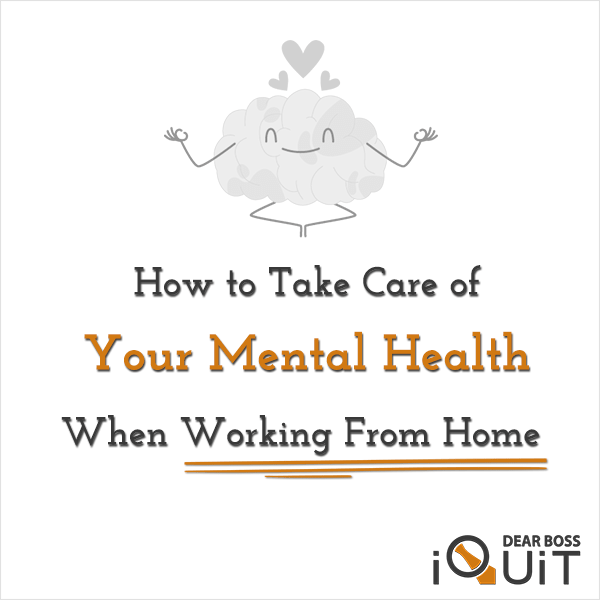*This post is sponsored by MyTherapist.
Over the last few years, more and more people shift from traditional working models to earning their living while working from home.
Some launch online businesses to ditch the 9-5 grind and set their work schedule according to their own needs.
Others are working jobs that have gone remote either temporarily or permanently after the pandemic outbreak.
Whatever the case, while working from home does have its perks, for some, especially those who are more extroverted, such kind of seclusion could negatively impact their mental health.
Having said that, whether you’re still adjusting to working from home or you’ve been working from home for years, in this article I’m going to share with you some tips that you could leverage towards taking better care of your mental health.
Why Taking Care Of Your Mental Health Matters
It’s undeniable that the status of your mental health impacts your overall quality of life.
First of all, your mental health is directly correlated with your physical well-being.
For instance, prolonged stress can lead to several health issues, such as:
- higher blood pressure
- increased risk of cardiovascular disease
- trouble sleeping
- burnout
- and even earlier mortality
Secondly, poor mental health has the potential to inhibit your concentration, productivity, and work performance. This could increase your chances of getting demoted or maybe even fired.
Furthermore, suffering from mental health issues could negatively affect your interpersonal relationships with friends, family members, and romantic partners, decrease your overall satisfaction in life, diminish your confidence, increase irritability, negative thoughts, and the tendency to isolate yourself.
Having said that, if you deem that your home occupation has started disturbing your mental health, you need to start taking action before the damage becomes irreversible.
Here’s how…
How To Take Care Of Your Mental Health While Working From Home
1. Maintain Social Connections
Mental health can be described as the sum of our emotional, psychological, and social well-being.
Maintaining strong mental health requires the nurturing of all three aforementioned aspects.
However, for home-based workers, we can safely assume that the aspect that probably needs the most attention is the social one.
While working from home you can easily get caught up with work and isolate yourself from any kind of social interaction for several days.
Making sure that you’re spending some time with friends, family, and loved ones regularly can help you counter the negative impact such solitude could have on your mental health.
Moreover, you could also start acquiring new social connections by signing up for a class, joining online forums, volunteering, etc.
2. Build a Schedule That Works for You
Creating a daily schedule that’s in favor of your overall well-being is crucial to retaining optimal mental health while working from home…
For instance, if you have complete control over your working schedule you might want to split it into two or more shifts between which you’ll be taking a 2-hour break to rest, unwind, workout, practice self-care, etc.
The trick here is to experiment with as many different variations of your working schedule as possible until you come across the one that serves your mental health and well-being the best.
If you have no control over your working hours you could still put together a schedule for taking care of your mental health in your free time.
For example, you could set aside some time for a walk around your neighborhood each morning before you clock in. Outdoors exercise can be particularly beneficial for home-based workers who spend the vast majority of their day indoors.
Prioritizing sleep and sleep hygiene when shaping your daily schedule is key to recharging your mental energy, especially if you have trouble falling asleep or being unable to get high-quality sleep.
Limiting caffeine, sleeping in a cool, comfortable, dark environment, meditating, working out, and setting aside electronics at least an hour before bed could help you minimize potential sleeping issues.
3. Set Boundaries
When I first shifted from working a regular job to working from home as a self-employed affiliate marketer, many friends of mine begun behaving as I had no job at all.
For instance, some of them started proposing to come by my house and hang out or go out to grab a drink/bite, right in the middle of the workday.
Others started calling me multiple times during my working hours for no reason whatsoever and a few select were even asking me to run errands for them.
Soon, I realized that people who’ve never worked from home can’t really grasp that working from home means doing ACTUAL work from home…
And having such people constantly distracting you from doing your job could induce great amounts of stress that could eventually harm your mental health.
In such a case, you NEED to start setting some boundaries with your friends and loved ones…
Explain to them that working from home doesn’t mean that you have no working schedule, no duties to complete, no deadlines to meet, or that you’re free to do whatever you want at any given time.
Lastly, setting boundaries with yourself is a great way to ensure that you’ll avoid getting overworked and burned out.
An example of a boundary you set with yourself might be, “I will not reply to emails after 6 PM. Evenings are for rest, self-care, family time.”
Finding a healthy balance between work and downtime while working from home might be challenging but it could greatly improve the quality of your mental health.
What to Do When You Need Additional Support
When the going gets tough, additional support could help immensely restore your mental health.
Whether you are struggling with stress, concerns related to work or your business, interpersonal relationships, a mental health condition, grief, loss, or anything else, seeing a therapist or counselor might go a long way.
There are several different ways to go about finding a therapist…
You can ask your doctor for a referral, contact your insurance company to see who they cover, search the web, use an online directory, utilize an employee assistance program, or use a reputable online therapy platform.
Online Therapy
Online therapy is an excellent way to receive the support you need from the privacy and comfort of your own home.
When you use an online therapy platform like MyTherapist, you can be sure that any provider you see will be licensed, and your privacy will always be protected.
It’s typically more affordable than traditional in-person counseling is in the absence of insurance, and whether you work from home or not, it’s a fantastic and flexible option for working professionals and anyone else with a busy schedule.
You’ll be able to access a broader range of providers with different specialties, and you can switch therapists or cancel services at any time if you need to.
Additionally, online therapy enables you to book a session with a provider much sooner than you would in a traditional in-person setting.
Whether you see a provider face to face or online, you deserve to get the support that you need.
Make your mental health a priority, and don’t hesitate to reach out for help when you need it.



6 Responses
This is such a convincing article on working from home. Nice work, much appreciated.
Thanks a lot for your kind words! I’m so happy you found this of value!
Best regards,
Harry
Working from home is a disaster for me. Thanks for making an effort to write this article.
I’m so glad you found this helpful!
All the best,
Harry
The website is so easy to use – I am impressed with it.
Thanks a lot for your kind words 🙂
All the best,
Harry